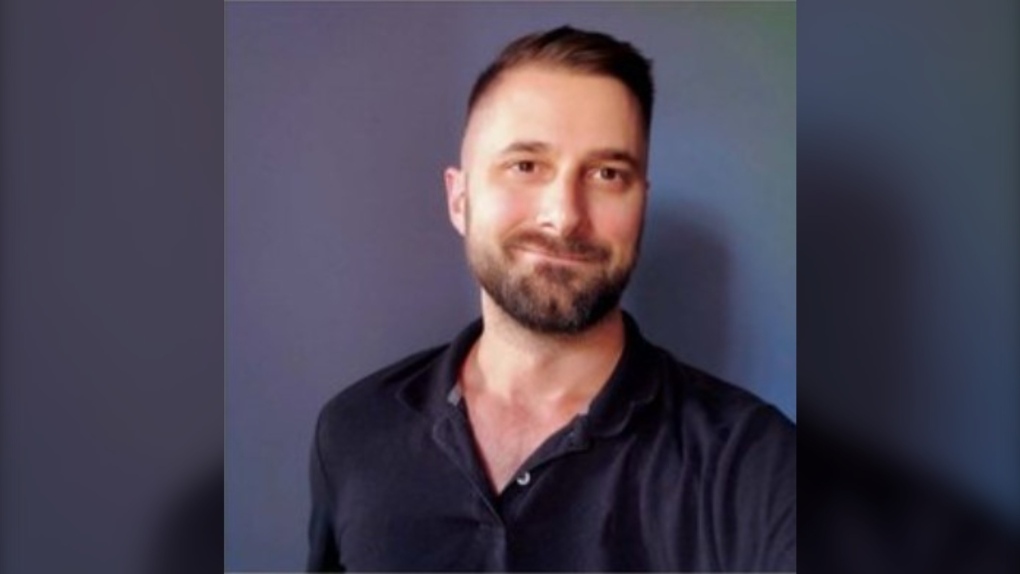Latest News
- Is this home the happiest Christmas home in Hamilton?
- The parents of the dead baby turned their grief into a way to reform the health system
- Fierce dispute after landlord's failed attempt to increase rent by 65 percent
- British Columbia Premier David Abe: 'We're not looking for a 2026 election' after a challenging year for the NDP coalition
- Power restored to thousands of customers in Atlantic region after strong winds over the weekend
Latest Ads
-
Jasmine Jewel
Call
-
Omidan group
Call
-
Amir Madanpour
Call
-
Dimo studio
Call
-
Yorkacademy
Call
-
Maryambagheri
Call
-
Shishlix Restaurant
Call

This Montreal man died of an aneurysm after waiting in the ER for six hours
A Montreal man died of a ruptured aneurysm after a six-hour wait in the emergency department
Adam Burgoyne, 39, wrote on his X account on December 5 that he had a "health scare" but thankfully "not a heart attack" after having an electrocardiogram (ECG). He said he was suffering from pain in the left side of his chest, nausea, sweating and difficulty breathing.
He added that after making sure he was "not dying", he was "thrown into the waiting room" where he waited for six hours before being sent home without receiving further medical attention. It is not yet known which hospital Burgoyne went to.
His obituary states that he died the next day.
Originally from Halifax, Adam was remembered by loved ones as someone who "loved to laugh and was always making us laugh with quotes from 90s cartoons, Monty Python movies, MadTV sketches, childhood memories and silly memes." He was recently engaged.
Burgoyne's close friend Joshua Slocum said his death was a complete shock. Burgoyne was young, healthy and fit, and long sober after a bout with addiction.
"You don't expect a 39-year-old man to die like this," he said.
He went on to say that Burgoyne had "made a very good living for himself and had recovered from his drug addiction and become a decent, professional person."
Slocum, who himself suffered a heart attack at age 36, stressed that people should listen to their bodies when they feel something is wrong. She said when he had the heart attack, he felt little pain and could walk and talk, but knew he had to call an ambulance.
"If you feel like something serious is going on that you haven't experienced, that's usually a good sign that something is seriously wrong," he said.
He added that people should support themselves even in emergencies where staff may be under pressure.
"The assumption shouldn't be that someone just had an anxiety attack, as Adam was told. "I think they didn't take it seriously enough."
Burgoyne's sister Shelley Amyot said the family is grieving and asking for privacy.
"We hope that in the near future standard protocols in emergency admissions and triage will be expanded so that the tests and imaging used to diagnose aneurysms are given the same priority and urgency as they are for heart attacks," he told CTV News.
Overburdened health system
Paul Brunt, chairman of the Patient Protection Council, said he "cannot believe this man was not treated sooner and his death prevented."
He pointed to a 2005 Supreme Court decision that said long wait times were part of managing the public health system. Brunett added that most emergencies can be treated at other locations, such as the GAP program, by calling 811 or through other telemedicine methods.
"They need to take the word emergency off these wards because, unfortunately, unless you're dying right now, I'm not sure you're going to be seen," he said.
Dr. Greg Clark, who is a board member of the Quebec Association of Emergency Physicians, said the problem is not with the triage system, but with the entire health network.
Patients who come to the emergency room should be seen within 15 minutes, he said, and delays begin first in second-priority cases. Aneurysms can be difficult to predict or identify in time, Clark added.
Hospitals are overcrowded, there aren't enough beds in other departments, intensive care units or home care staff, and patients who should be cared for elsewhere are crowding emergency rooms, he said.
“This causes delays in assessment and transfer to other departments. This is a big problem."
Clarke and Brunet hope that the change to Santé Québec will increase the efficiency and accountability of the system.
news source
Suggested Content
Latest Blog
Login first to rate.
Express your opinion
Login first to submit a comment.
No comments yet.


































